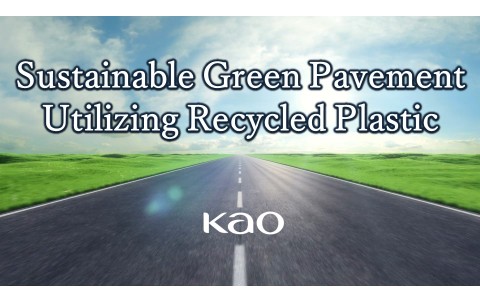Highly durable asphalt modifier made from waste PET "NEWTLAC"

Kao Corporation
Chemical Business, Eco Infrastructure
Technology / Service Summary
The features of the technology
・It utilizes waste PET as a raw material and transforms it into a modifier through unique chemical processes.
・It enhances the durability of asphalt pavement when added.
・It can recycle up to the equivalent of 1,400 PET bottles per 500ml PET bottle per 100m2 of asphalt pavement.
Purpose
・The effective utilization of hard-to-recycle low-grade waste PET
・Improving the durability of asphalt pavement
Feature
By utilizing waste PET bottles (low-grade) and discarded PET fishing nets as raw materials for asphalt modifiers, this sustainable technology contributes to the recycling of waste materials.
Effect
By improving the durability of asphalt pavement, it can reduce road surface damage and potentially suppress CO2 emissions from repair work by up to 40%. Furthermore, it is expected to enhance resistance to rutting by up to 5 times and reduce the generation of wear particles from the pavement, thereby contributing to the conservation of marine resources. The technology also allows for improvement in pavement properties such as water resistance, UV resistance, and oil resistance, enabling application in various environmental conditions.
Controlled Substance
- Microplastics
Applicable Regions / Countries
- Japan
- Southeast Asia
- Central/South Asia
- Middle East
- Africa
- Oceania
- Europe
- Central/South America
- ASEAN countries
Indonesia,Singapore,Thailand,Philippines,Viet Nam,Malaysia
Locations for inspection
Virginia Transportation Research Center (VTRC) – Virginia, USA
Amata City Chonburi - Thailand
Kao (Taiwan) Corporation Hsinchu plant - Taiwan
Iwata, Shizuoka, public road - Japan
Related SDGs Goals
- 6. Clean Water and Sanitation
- 7. Affordable and Clean Energy
- 11. Sustainable Cities and Communities
- 12. Responsible Consumption and Production
- 14. Life Below Water





